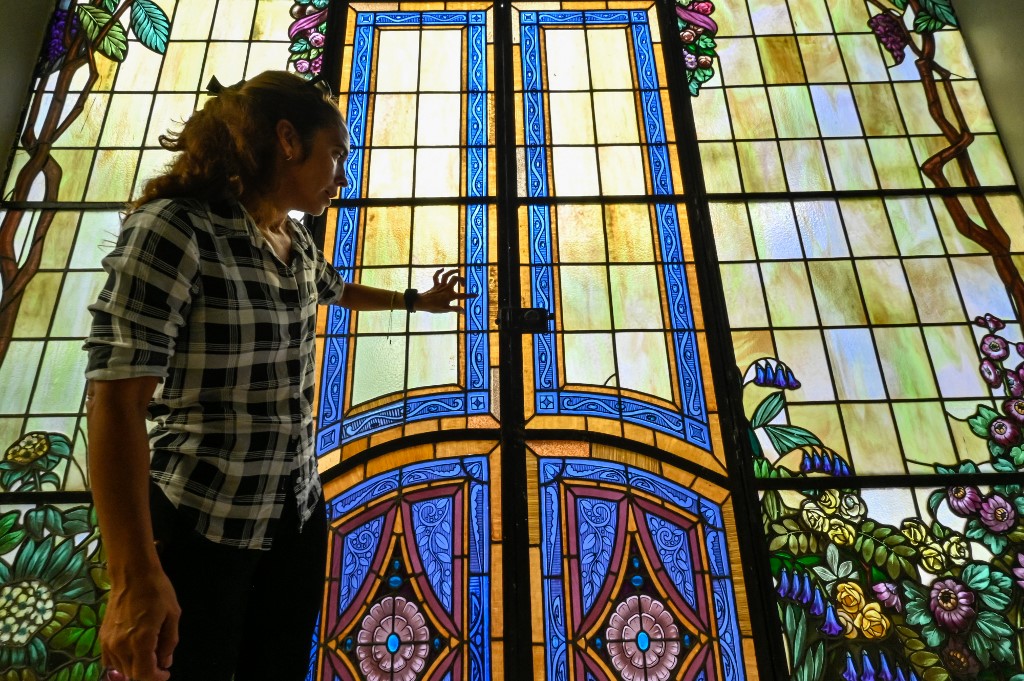In a formerly posh neighborhood of Cuba’s capital, stained glass windows still sparkle in what used to be the opulent family homes of the rich.
The houses, which date mostly from Havana’s 20th century heyday, are today in various states of conservation — some magnificent, others crumbling.
But bit by bit, when money and resources allow, the windows they boast are being meticulously restored by a dedicated team, subsidized by the state.
“We want to keep this art alive, it would be wonderful not to lose it,” said Mirell Vazquez, who teaches stained glass restoration at the state-run Gaspar Melchor de Jovellanos school in Havana, and oversees a team of five restoration professionals, all trained by her.
Vazquez has identified about 500 stained glass windows in the Vedado neighborhood that once housed the Cuban capital’s most luxurious homes — many built with money from the then-flourishing sugar industry.
Most of the grand old houses no longer serve a residential purpose, having been nationalized and turned into offices or embassies.
There are a wide variety of windows on display in Havana — including some of the first colonial-style examples, in the shape of colored fans with wooden frames, which became a symbol of historic Old Havana, founded in the 16th century.
Then from the 20th century onward, the homes of the wealthy in Vedado were adorned in styles from Europe — with stained glass windows first imported from workshops in France and Spain, then made locally.
‘Aggressive’ climate
As the country’s economic fortunes have declined — combined with a humid, tropical climate that is “very aggressive for stained glass windows,” many of the colorful marvels have fallen into disrepair, said Vazquez.
Cracks, missing parts and deformed lead are the most frequent fixes her team needs to make.
And despite having government backing for their labor, they sometimes have to battle to obtain the materials they need as the country faces its worst economic crisis in decades.
Linda Viamontes de la Torre, 32, has worked as a restorer under Vazquez for two years, after an initial career in health care, and has collaborated on repairing the windows of two Havana churches.
“It is very satisfying” when a window is able to “regain its original appearance,” she told AFP as she worked on a panel from a neo-Gothic church.
Havana’s windows — some of the best examples of stained glass in the Caribbean — and its pool of recognized restorers, prompted the UNESCO cultural heritage body and European Union to launch a project to bring young people from elsewhere in the region to Cuba for training in the field.
Chloe Cadet, a 26-year-old design student from Trinidad and Tobago and one of the beneficiaries, said she was surprised by the city’s “historical architecture and the way that it’s preserved so well.”
Fellow student Franklin Alberto Sanchez, a 32-year-old from the Dominican Republic, told AFP he had learned about everything from glass manufacturing to safe cutting techniques.
“In my country, there is no training in stained glass restoration and conservation,” he said, with plans of applying what he learned back home.
“This was the best place for this course.” (Jordane BERTRAND)
jb/mlr/nro
© Agence France-Presse
